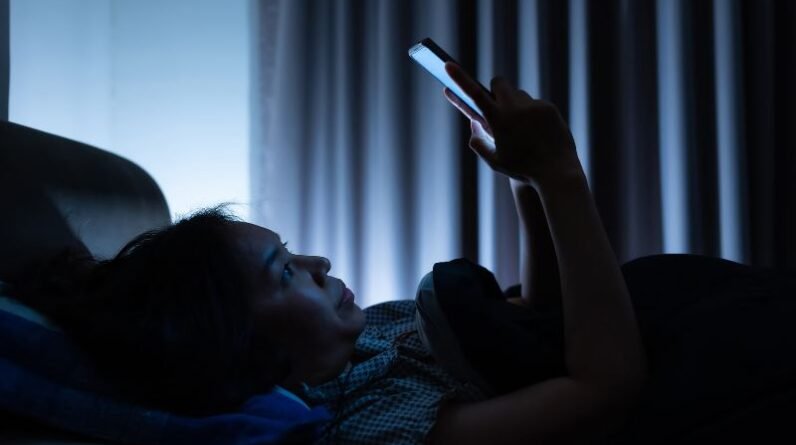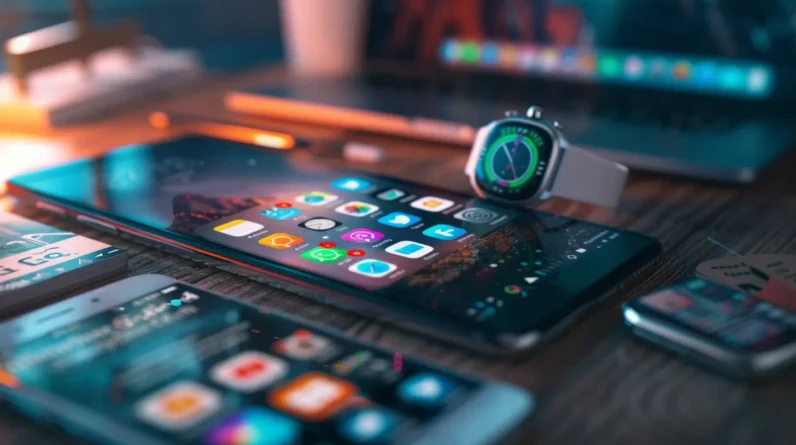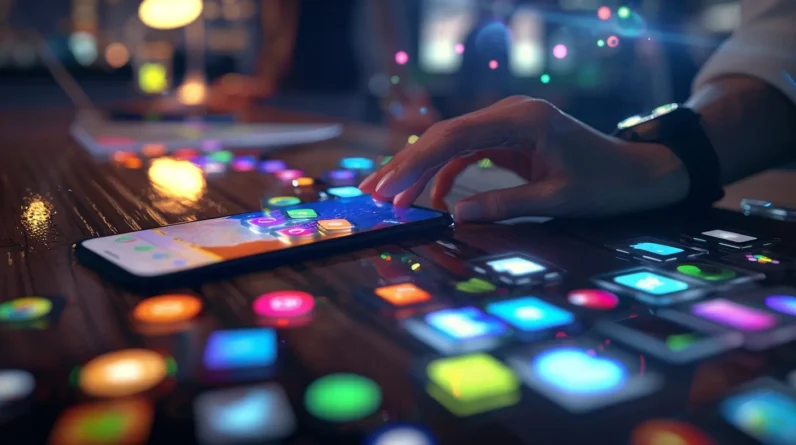
As we plunge deeper into the digital age, the glowing screens of our smart devices have become constant companions. But have we paused to consider the toll this companionship might be taking on our health?
The effects of prolonged smart device use are multifaceted, ranging from impacts on eye health to disrupted sleep patterns and potential long-term consequences. Let’s explore the intricate web of health risks that lurk behind our screens, waiting to be unveiled.
Impact on Eye Health
Prolonged use of smart devices can lead to an increased risk of eye strain and digital eye fatigue. The blue light emitted by screens can cause discomfort, dryness, and blurred vision. To alleviate these issues, follow the 20-20-20 rule: every 20 minutes, look at something 20 feet away for at least 20 seconds.
Adjusting screen brightness and contrast, as well as minimizing glare, can also help reduce strain. Additionally, consider using artificial tears to keep eyes lubricated. Regular eye exams are crucial to monitor any potential damage. Practicing good posture while using devices is essential to prevent further complications.
Musculoskeletal Issues
Continuing to use smart devices for extended periods can contribute to musculoskeletal issues, which affect the body’s posture and alignment. This can lead to discomfort and potential long-term health implications.
Here are three key musculoskeletal issues associated with prolonged smart device use:
1. Text Neck: Constantly looking down at devices can strain the neck muscles and lead to neck pain and poor spinal alignment.
2. Tech Thumb: Excessive texting or scrolling can cause inflammation in the thumb tendons, leading to conditions like tendinitis.
3. Mouse Shoulder: Repetitive movements while using a mouse or holding a device can strain the shoulder muscles, causing pain and stiffness.
It is essential to be mindful of our posture and take regular breaks to prevent these musculoskeletal issues.
Disrupted Sleep Patterns
Our modern lifestyle’s reliance on smart devices can disrupt sleep patterns, impacting our overall health and well-being. The blue light emitted by screens interferes with the production of melatonin, the hormone that regulates sleep. Exposure to this light before bedtime can delay the onset of sleep and reduce the quality of rest.
Moreover, the constant notifications and alerts from smart devices can lead to increased arousal, making it harder to fall asleep and stay asleep throughout the night. Research suggests that individuals who use smart devices before bed are more likely to experience sleep disturbances, such as insomnia.
To mitigate these effects, it’s recommended to establish a digital curfew and create a relaxing bedtime routine that doesn’t involve screen time.
Increased Stress and Anxiety
The impact of prolonged smart device use extends beyond disrupted sleep patterns to include increased stress and anxiety levels among individuals. Excessive screen time can lead to heightened levels of stress and anxiety due to various factors such as constant notifications, social comparison, and information overload.
Here’s how prolonged smart device use can contribute to increased stress and anxiety:
1. Notification Overload: Constant notifications from apps and messages can create a sense of urgency and disrupt mental peace.
2. Social Comparison: Excessive time on social media platforms can lead to comparing one’s life with others, triggering feelings of inadequacy and anxiety.
3. Information Overload: Endless scrolling and exposure to distressing news can overwhelm the mind, contributing to heightened stress levels.
Potential Long-Term Effects
Research suggests that prolonged smart device use may have significant long-term effects on physical and mental health. Excessive screen time can lead to issues such as digital eye strain, musculoskeletal problems, and disrupted sleep patterns.
The constant exposure to blue light emitted by screens can disrupt our circadian rhythm, potentially leading to long-term sleep disturbances. Additionally, the sedentary nature of prolonged smart device use can contribute to an increased risk of obesity and related health conditions over time.
Furthermore, the addictive nature of smartphones and social media can have long-lasting effects on mental health, including increased feelings of loneliness, anxiety, and depression. It’s crucial to be mindful of our smart device usage and incorporate healthy habits to mitigate these potential long-term consequences.
Conclusion
It’s clear that prolonged use of smart devices can have detrimental effects on our health. Just like a tree needs sunlight to thrive, our bodies require balance and moderation in screen time to flourish.
Let’s remember to take breaks, practice good posture, and prioritize our well-being in this digital age. Our health is precious, let’s nurture it like a delicate garden.







